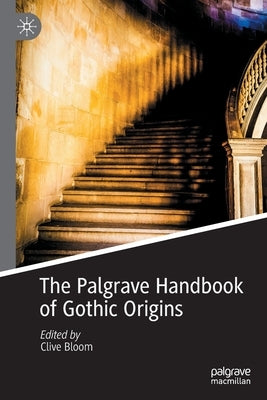Before you leave...
Take 20% off your first order
20% off
Enter the code below at checkout to get 20% off your first order
Discover summer reading lists for all ages & interests!
Find Your Next Read

This handbook provides a comprehensive overview of research on the Gothic Revival. The Gothic Revival was based on emotion rather than reason and when Horace Walpole created Strawberry Hill House, a gleaming white castle on the banks of the Thames, he had to create new words to describe the experience of gothic lifestyle. Nevertheless, Walpole's house produced nightmares and his book The Castle of Otranto was the first truly gothic novel, with supernatural, sensational and Shakespearean elements challenging the emergent fiction of social relationships. The novel's themes of violence, tragedy, death, imprisonment, castle battlements, dungeons, fair maidens, secrets, ghosts and prophecies led to a new genre encompassing prose, theatre, poetry and painting, whilst opening up a whole world of imagination for entrepreneurial female writers such as Mary Shelley, Joanna Baillie and Ann Radcliffe, whose immensely popular books led to the intense inner landscapes of the Bronte sisters. Matthew Lewis's The Monk created a new gothic: atheistic, decadent, perverse, necrophilic and hellish. The social upheaval of the French Revolution and the emergence of the Romantic movement with its more intense (and often) atheistic self-absorption led the gothic into darker corners of human experience with a greater emphasis on the inner life, hallucination, delusion, drug addiction, mental instability, perversion and death and the emerging science of psychology. The intensity of the German experience led to an emphasis on doubles and schizophrenic behaviour, ghosts, spirits, mesmerism, the occult and hell. This volume charts the origins of this major shift in social perceptions and completes a trilogy of Palgrave Handbooks on the Gothic--combined they provide an exhaustive survey of current research in Gothic studies, a go-to for students and researchers alike.
Clive Bloom is Emeritus Professor at Middlesex University, UK, and currently, Professor in Residence at the Larkin Centre for Poetry and Creative Writing at Hull University, UK. He has written numerous books on popular literature and Gothic fiction, history and politics. He is a broadcaster and occasional journalist who has been quoted in both the Washington Post and Pravda and has an entry in the Columbia Book of World Quotations.
Thanks for subscribing!
This email has been registered!
Take 20% off your first order
Enter the code below at checkout to get 20% off your first order